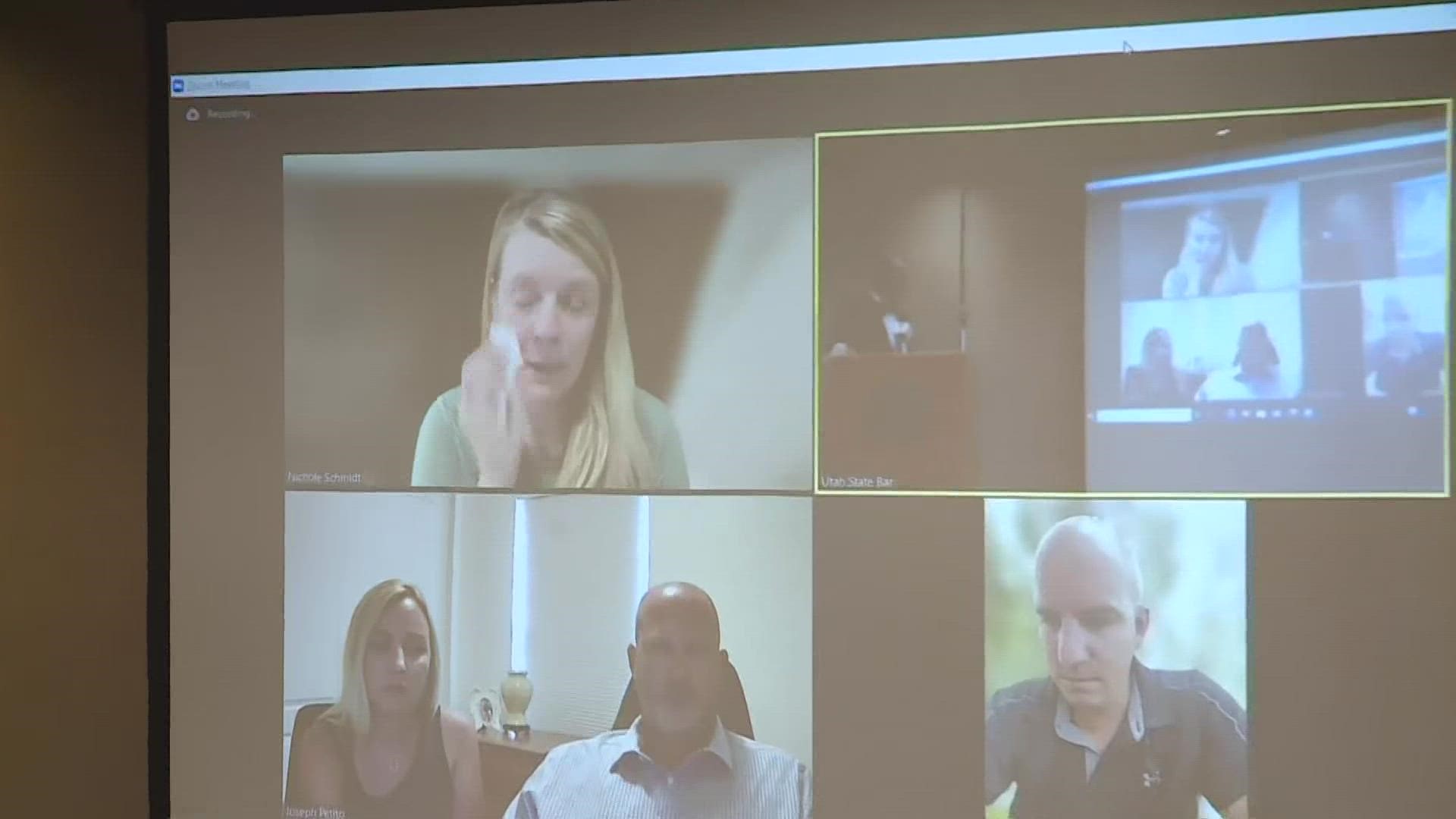SALT LAKE CITY — Gabby Petito's family on Monday notified Utah officials of plans to file a wrongful death lawsuit alleging that police failed to recognize their daughter was in a life-threatening situation last year when officers investigated a fight between her and her boyfriend. The fight happened weeks before authorities say the boyfriend killed her while the couple was on a cross-country van trip.
The notice of claim contends police in the tourist town of Moab missed signs that Petito was the victim of domestic violence at the hands of Brian Laundrie on Aug. 12, 2021. The officers ultimately allowed the couple to leave after requiring them to spend a night apart.
Police body cam video widely viewed as the investigation unfolded last year showed Petito, 22, visibly upset and raised questions about whether a different police response could have prevented her death. Appearing by video at a news conference to announce the claim, Petito's mother, Nicole Schmidt, said “watching it is very painful.”
“I wanted to jump through the screen and rescue her,” Schmidt said.
Notices of claims are required before people can sue government entities and the family’s claim said that the lawsuit will seek $50 million in damages. Moab officials have 60 days to respond before the family can file a lawsuit based on the claim.
The family's lawyer, James McConkie, told reporters in Salt Lake City that “the officers fail to recognize the serious danger that she was in, and failed to investigate fully and properly.”
He added: "They did not have the training that they needed to recognize the clear signs that were evident that morning, that Gabby was a victim and that she was in serious need of immediate help."
Public workers such as police officers typically have immunity from lawsuits in many states, including Utah. Debate over that legal doctrine, known as “qualified immunity,” emerged after police shootings in 2020 and has reached both Congress and the U.S. Supreme Court.
The Petito family’s attorneys said they planned to argue that applying Utah’s governmental immunity law to wrongful death claims is unconstitutional and a roadblock to accountability.
“The only effective way to correct these problems is to hold our institutions accountable for failures, including law enforcement,” said another Petito family attorney, Brian Stewart.
After the notice of claim was filed, Moab city government spokesperson Lisa Church declined to comment, saying the city does not comment on pending litigation.
Petito was reported missing a month after that traffic stop, and her strangled body was discovered on Sept. 19 on the edge of Grand Teton National Park in Wyoming.
Laundrie, 23, later killed himself in Florida after being named the only person of interest in her death. Petito and Landrie were originally from Long Island, New York.
The search for Petito drew worldwide attention, spurring amateur sleuths to scour social media for clues. It also brought scrutiny of authorities and the news media, both of which have been criticized for focusing more attention on missing white women than on women of color.
Earlier this year, an independent investigation found that police in Moab made “several unintentional mistakes” when they came across Petito and Laundrie. In the report, police said it was very likely that Petito “was a long-term victim of domestic violence, whether that be physically, mentally, and/or emotionally.”
Laundrie killed himself in a Florida swamp, leaving behind a notebook that authorities said contained a confession.
In addition to filing the notice of claim, Schmidt recently announced a $100,000 donation from the Gabby Petito Foundation to partner with the National Domestic Violence Hotline to help others survive turbulent and violent relationships.
Schmidt told The Associated Press in an interview last week that she still has many unanswered questions about what went wrong.
“Looking back, I didn’t really see any signs. I think the only two people that will ever know what happened in that relationship was Gabby and Brian. And we can guess and we can make assumptions but we don’t really know what happened,” she added. “Most likely the scenario ended that way because something was happening for a while.”

